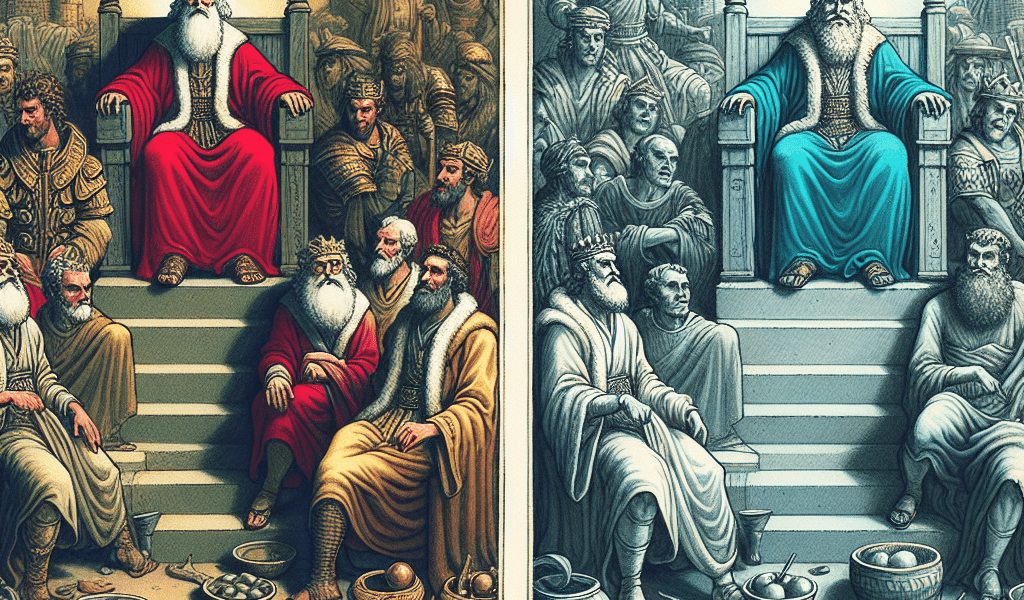In the land of Jericho, there dwelt wicked hearts and wicked minds that, though they feared nothing and no one, lived their lives in constant fear. These wicked hearts were kings and princes of the land, who ruled by oppression and greed. On the contrary, there were righteous hearts, who in the face of evil, stood firm like a lion, practicing justice, kindness and faithfulness.
In this kingdom, there was a common man named Abidan, who was poor yet walked in integrity, following Jehovah’s law. He was deemed wise and received blessings even in his poverty. Abidan, despite his lowly stature, had more understanding and knowledge than the arrogant rich who believed they needed nothing other than their wealth.
Among the wealthy was a man called Zimri, rich in earthly treasures but destitute in spirit and understanding; he acquired his riches through unjust means. Zimri had an evil eye for swift riches, giving no heed to Jehovah’s teachings. He was a companion to the gluttonous, and he sought to lead the upright astray.
However, Abidan though needy, did not stoop to oppression. He tilled his small plot of land with diligence, providing for the needy, and he found favor with Jehovah. Abidan put his trust in Jehovah and drew his wisdom from the law, whereas Zimri trusted in his own heart and led a life full of folly and persecution.
The wicked Zimri, who turned his back on the law, lived a hard-hearted life, nourishing his wealth with interest and increase. But Abidan, though poor, was a man of wisdom. He gave generously to the poor knowing that he would not lack in his faithfulness. He held no respect for persons and did not lean towards corruption, unlike Zimri, who filled his coffers by robbing his own father and mother, stirring strife and contention wherever he went.
Jehovah’s law stated, “He that augmenteth his substance by interest and increase, Gathereth it for him that hath pity on the poor.” And it held true. The wealth Zimri had amassed unjustly began to dwindle, and he soon found himself besieged by poverty and disease. Yet, due to his pride and conceit, he refused to confess and forsake his transgressions.
In the mist of his hardship, Abidan visited Zimri, rebuking him yet extending a hand of kindness, urging Zimri to turn back to Jehovah’s law. Zimri’s promise to reform held no weight for his heart was hardened and void of integrity. Unlike Abidan, who confessed and abandoned his old ways, Zimri fell further into his pit of destruction.
As the Prince of lies was overthrown by his wicked ways, the land began to thrive under the reign of the righteous. Evil dimmed while justice, kindness, and faith in Jehovah grew. Those poor in wealth but rich in understanding began to increase. As the wicked vanished, righteousness flourished, filling the streets of Jericho with joy and gladness. Indeed, the poor man who walked in integrity and righteousness triumphed over the rich man who trusted in his wealth but was perverse in his ways.
And so, it was that the land of Jericho learned, “Better is the poor that walketh in his integrity, Than he that is perverse in his ways, though he be rich.” For a faithful man abounds with blessings, and he who gives to the poor shall not lack, but he who hides his eyes shall have many a curse.




